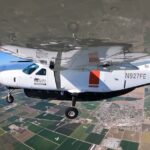 Hyundai Motor Group is taking a bold step into the future by introducing Atlas humanoid robots at its Metaplant America facility in Georgia. Developed by Boston Dynamics, these agile bipedal machines are set to handle tasks that have traditionally required human effort, with projections to automate up to 40% of the vehicle assembly process by year’s end, according to Nikkei Asia.
Hyundai Motor Group is taking a bold step into the future by introducing Atlas humanoid robots at its Metaplant America facility in Georgia. Developed by Boston Dynamics, these agile bipedal machines are set to handle tasks that have traditionally required human effort, with projections to automate up to 40% of the vehicle assembly process by year’s end, according to Nikkei Asia.
This development deepens Hyundai’s collaboration with Boston Dynamics, acquired from SoftBank in 2021. With plans to order tens of thousands of these robots, Hyundai is clearly investing in mobile robotics to sharpen its competitive edge.
At the new facility, Atlas robots will take on roles like lifting heavy components and installing vehicle doors, integral steps in car assembly. Already, the company has deployed Spot—the four-legged inspection robot—at other plants, showcasing a broader commitment to streamlining production.
Further automation is on the horizon, with Hyundai preparing to expand its use of robots to pressing and welding tasks. This initiative dovetails with the company’s $21 billion investment in the U.S., including a dedicated $6 billion for innovation, automation, and strategic partnerships.
With past U.S. tariffs on imported autos contributing to an even stronger push for automation, Hyundai has seen its U.S. sales grow by 4%, reaching 1.9 million units, even as global sales dipped by 2% last year. This growth underscores the importance of North America to Hyundai’s overall strategy.
Hyundai’s competitive pricing, particularly in its hybrid range, continues to resonate with U.S. consumers. The company plans to produce 100,000 electric and hybrid vehicles annually at the facility, with ambitions to scale up to 500,000 units and boost U.S. production from 700,000 to 1.2 million vehicles per year.
Analyst Lee Jae-il of Eugene Investment & Securities credits the success to the affordable cost-performance of Hyundai’s hybrids. However, with tariffs still impacting imported vehicles from South Korea, Hyundai is treading carefully—President Jose Munoz has confirmed that price adjustments are on hold until June, despite rising concerns.








